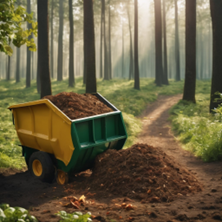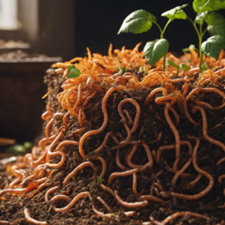Composting / Vermicomposting

Composting
The biological breakdown of organic debris that typically contains different polymeric organic components like cellulose and lignin is known as composting. The process is dynamic and involves the enzymatic breakdown of these polymers into sugars and soluble organic carbon that bacteria can use (Gou, Wang, Zhang, Lou, & Gao, 2017; Jurado et al., 2015). Microorganisms carry out the composting process by nature, and soil detritivores may help with it as well.

Vermicomposting
It is a type of compost/ manure prepared with the use of earthworms. Vermicompost contains saturated form of several plant nutrients and helps in improving the physical properties and nutrient contents of soil. Vermicompost contains water-soluble nutrients and is an excellent, nutrient-rich organic fertilizer and soil conditioner. Vermicompost is also rich in beneficial microorganisms. These properties of vermicompost help in improving the soil quality and boosting crop productivity. Moreover, the use of vermicompost does not cause any harm to the soil as in the case of synthetic fertilizers.

